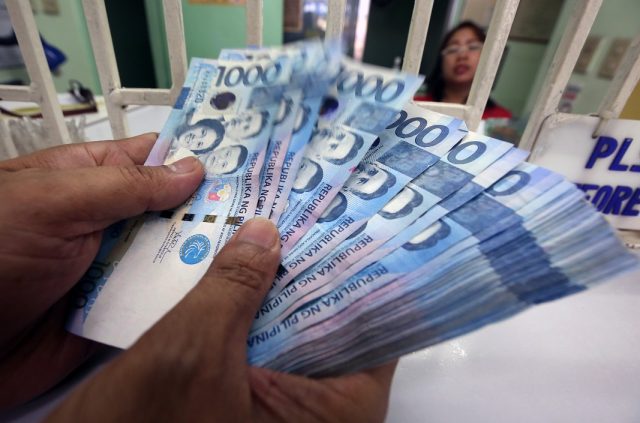- S.Korean won hits over 13-year low
- Thai c.bank chief says inflation to peak in Q3
- Yuan touches lowest level since Aug 2020
The Philippine peso hit a record low and other Asian currencies fell against the greenback on Monday as Russia’s indefinite closure of its main gas supply pipeline to Europe and extended COVID curbs in China bolstered the safe-haven dollar.
Shares across Asia also lost ground, while the euro sunk to a two-decade low. [FRX/]
“Haven demand was arguably triggered by headline geo-political risk dimensions to a more aggressive posture by Russia in suspending gas supplies to Europe,” said Vishnu Varathan, head of economics and strategy at Mizuho Bank.
The peso <PHP=> declined 0.1%, while the Taiwanese dollar <TWD=TP> and Singapore dollar <SGD=> lost between 0.2% and 0.5%. Vietnam’s dong <VND=> dropped 0.4% to hit a near two-and-half-year low after an extended holiday weekend.
Riskier emerging market assets have come under immense pressure recently, with markets pricing a more hawkish response from central banks since the Jackson Hole symposium last month.
Among other Asian currencies, South Korea’s won <KRW=KFTC> slid 0.7% to hit its lowest level since April 2009.
In China, COVID-19 outbreaks and a gloomy growth outlook have further dampened risk sentiment.
The yuan <CNY=CFXS> has declined over 9% this year, and was down 0.4% on Monday, hitting its lowest level since August 2020.
In Indonesia, subsidized fuel prices were hiked by about 30% over the weekend. High energy subsidies had restrained Indonesia’s inflation, allowing the central bank to delay raising interest rates until last month, well behind regional and global peers. “For Bank Indonesia, the fuel price adjustment is a considerable game changer, given that the fiscal inflation shield is no more,” said Wellian Wiranto, an economist at OCBC bank.
He expects the central bank to hike rates by at least another 50 basis points over the rest of the year.
The rupiah <IDR=> dipped 0.1%, but stocks in Jakarta <.JKSE> rose 0.6%.
Share benchmarks in Seoul <.KS11> and Manila <.PSI> dropped 0.4% and 0.6%, respectively, while those in Singapore <.STI> and Mumbai <.NSEI> moved higher.
Shares in Thailand <.SETI> and the baht <THB=TH> were both weaker after the country reported that consumer price index rose 7.86% in August from a year earlier, the fastest pace in 14-years, but in-line with expectations.
Bank of Thailand’s chair said that inflation is set to peak in the third quarter and is likely to be more than 6% this year.
Over the week, Asia-focused investors will be looking out for key inflation data from China, the Philippines and Taiwan, as well as an interest rate decision from the Malaysian central bank.
| Asia stock indexes and currencies at 0409 GMT | ||||||
| COUNTRY | FX RIC | FX DAILY % | FX YTD % | INDEX | STOCKS DAILY % | STOCKS YTD % |
| Japan | <JPY=> | -0.10 | -18.00 | <.N225> | -0.10 | -4.06 |
| China | <CNY=CFXS> | -0.44 | -8.33 | <.SSEC> | 0.10 | -12.37 |
| India | <INR=IN> | -0.05 | -6.90 | <.NSEI> | 0.35 | 1.42 |
| Indonesia | <IDR=> | -0.15 | -4.47 | <.JKSE> | 0.52 | 9.62 |
| Malaysia | <MYR=> | -0.07 | -7.16 | <.KLSE> | -0.04 | -4.91 |
| Philippines | <PHP=> | -0.11 | -10.45 | <.PSI> | -0.50 | -6.50 |
| S.Korea | <KRW=KFTC> | -0.58 | -13.26 | <.KS11> | -0.29 | -19.32 |
| Singapore | <SGD=> | -0.23 | -3.95 | <.STI> | 0.25 | 2.88 |
| Taiwan | <TWD=TP> | -0.49 | -9.92 | <.TWII> | 0.03 | -19.44 |
| Thailand | <THB=TH> | -0.11 | -9.14 | <.SETI> | -0.30 | -2.43 |










